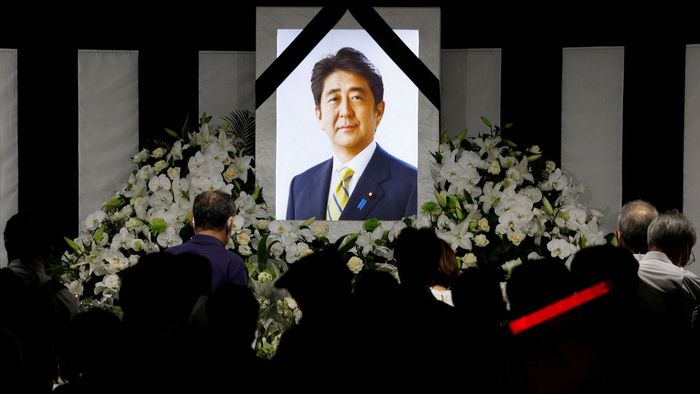Shooter of former Japanese PM Shinzo Abe pleads guilty as high-profile trial begins in Nara
Tetsuya Yamagami, 45, on October 28, admitted to fatally shooting Abe during a campaign speech in the western city of Nara in July 2022.

- Oct 28, 2025,
- Updated Oct 28, 2025, 1:12 PM IST
The man accused of assassinating former Japanese Prime Minister Shinzo Abe has pleaded guilty, marking the start of one of Japan’s most closely watched trials in recent years.
Tetsuya Yamagami, 45, on October 28, admitted to fatally shooting Abe during a campaign speech in the western city of Nara in July 2022. The attack, carried out with a homemade firearm, shocked Japan and drew global attention to the country’s political and religious ties.
The Nara District Court announced that hearings will continue through December, with a verdict expected on January 21. Hundreds gathered outside the courthouse on the opening day, with 727 people competing in a lottery for just 32 public seats inside the courtroom, according to Kyodo News.
Prosecutors said Yamagami targeted Abe because of his alleged links to the Unification Church, blaming the group for his family’s financial ruin. Investigators found that Yamagami’s mother donated about 100 million yen (approximately £520,000) to the organisation, leaving the family deeply in debt.
Sources said Yamagami told police he held Abe responsible, believing the former leader’s grandfather, Nobusuke Kishi, had helped bring the South Korea-based religious group to Japan in the 1950s. Before the shooting, Yamagami reportedly conducted several test firings of homemade weapons near facilities connected to the church.
Yamagami faces multiple charges, including murder, property damage, and violations of Japan’s firearms and explosives laws. A six-month psychiatric evaluation concluded he was mentally fit to stand trial. Witnesses expected to appear include his mother, a religious scholar, and a lawmaker who was present during the incident.
Abe’s assassination on July 8, 2022, not only ended the life of Japan’s longest-serving post-war leader but also exposed deep-rooted connections between the Unification Church and political figures, particularly within the ruling Liberal Democratic Party. The case continues to fuel public debate about those ties as the nation watches the proceedings unfold in Nara, now also represented by Sanae Takaichi — Abe’s protégé and Japan’s newly appointed first female prime minister.